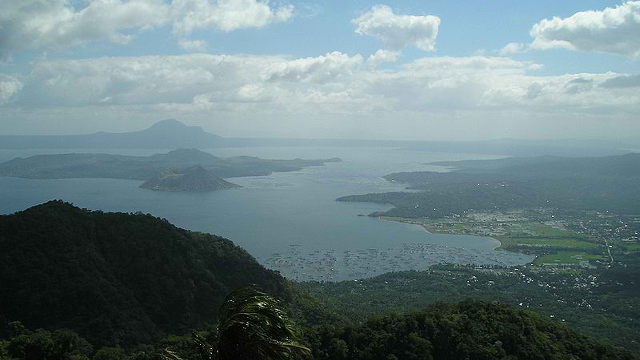SUMMARY
This is AI generated summarization, which may have errors. For context, always refer to the full article.

MANILA, Philippines – The Court of Appeals, through a Writ of Kalikasan, has ordered water company PTK2 H2O to stop extracting water from 4 rivers in Cavite. It also instructs the company to stop its construction of a dam and water delivery pipes in Indang town. (READ: Tagaytay tourism taking water away from Cavite residents?)
The Writ, issued on June 23, was sent to respondents PTK2 H2O, National Water and Resources Board (NWRB), Tagaytay City Water District (TCWD) and Department of Environment and Natural Resources Region (DENR) Region IV.
The Writ, obtained by Rappler, orders them to “cease and desist, pending resolution of this petition, from extracting water from the Ikloy, Indang, Lambak and Saluysoy rivers, from excavating, cutting trees and/or undertaking related construction works, and from implementing and/or executing any and all acts in furtherance of the alleged contracts and activities.”
The respondents were also ordered to respond to the Writ within a “non-extendible” period of 10 days after receiving the document.
A Writ of Kalikasan is a legal remedy designed to protect a Filipino citizen’s right to environmental protection. It may be used by any individual or group as protection from environmental damage that threatens the life, health and property of inhabitants in two or more cities or provinces.
The order, issued by Presiding Justice Andres Reyes and Justices Manuel Barrios and Pedro Corales, was in response to a petition for Writ of Kalikasan with Prayer for Temporary Environmental Protection Order (TEPO) by Save the Water in Indang (SWIM), a group of concerned Cavite residents and environmental advocates.
The judges found the petition, submitted on June 18, “sufficient in form and substance.”
Threatened water supply
SWIM accused PTK2 H2O of beginning a construction project that could threaten the water supply of Cavite province.
Documents showed that the water company had signed a deal with the TCWD to provide 50,000 cubic meters of water a day from the rivers. To fulfill their end of the bargain, PTK2 H2O has begun constructing water extraction facilities like a mini dam and pumping stations.
But scientific papers cited by the petition showed how this amount of water would bleed the rivers dry in a few years time. This could lead to water shortage for the 12 cities and municipalities who depend on the rivers.
The NWRB and DENR Region IV are blamed for greenlighting the project despite such studies and despite the lack of a proper environmental impact assessment.
But NWRB Executive Director Sevillo David Jr told Rappler that an Environmental Compliance Certificate is unnecessary for this type of project. He also gave assurances that the NWRB conducted their own study on Cavite’s water supply and concluded that the PTK2 H2O project would not endanger it.
According to TCWD, they sought the services of PTK2 H2O because of the water crisis facing Tagaytay City once the commercial establishments and hotels currently being built are completed in a few years.
Tagaytay City is one of the most popular tourism destinations in Luzon because of its cool climate, proximity to Metro Manila and view of the majestic Taal Volcano. – Rappler.com
Add a comment
How does this make you feel?
There are no comments yet. Add your comment to start the conversation.